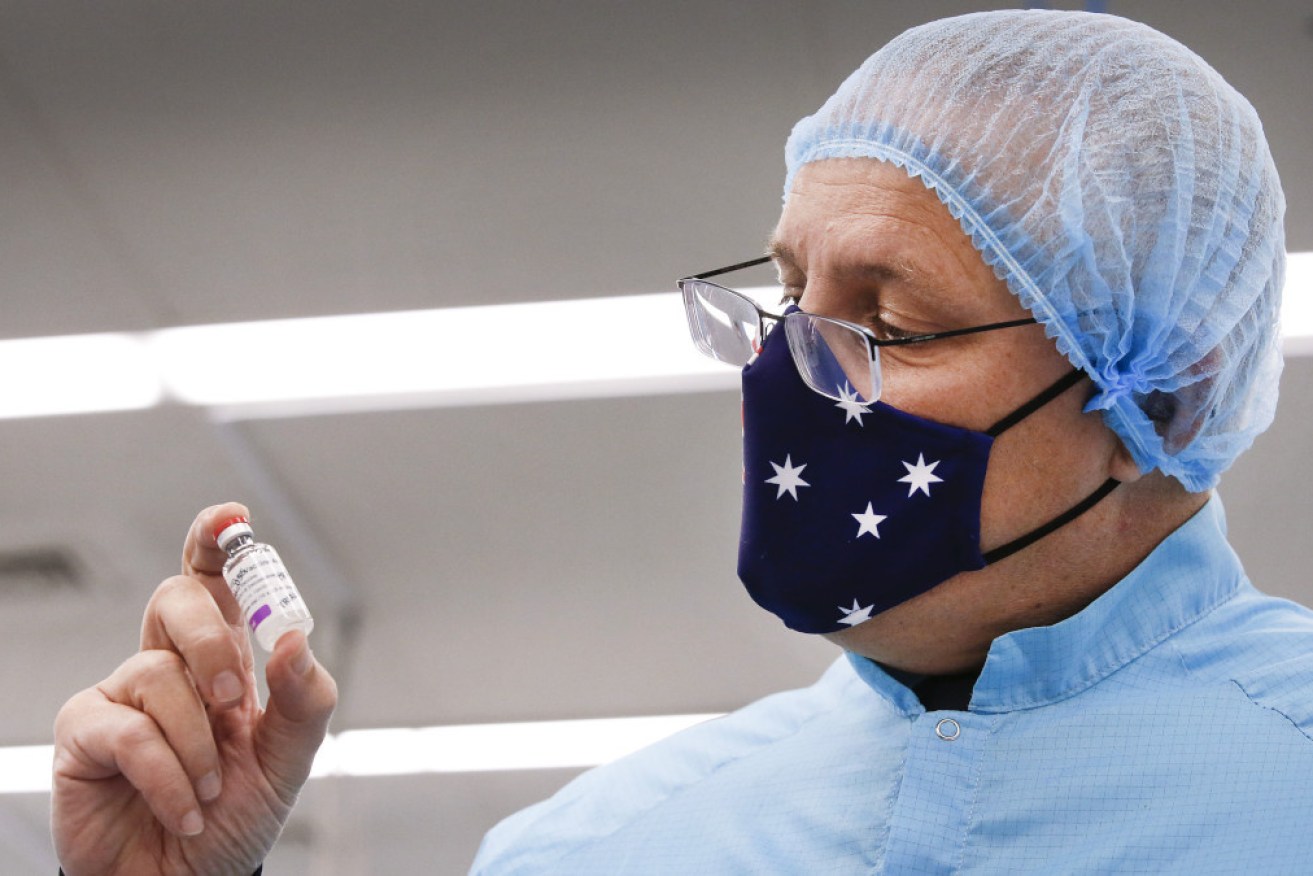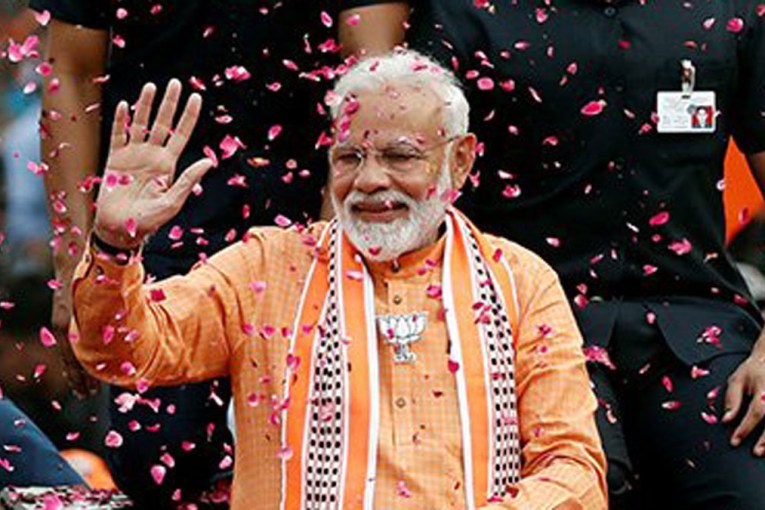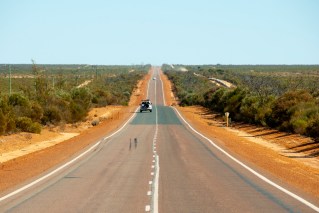Government’s AstraZeneca decision leaves us ‘vulnerable’ and neighbours ‘exposed’


Australia should be a "vaccine factory" for the region, humanitarian groups urged. Photo: AAP
Humanitarian agencies and health leaders have urged the federal government to keep producing AstraZeneca’s COVID-19 vaccine to help developing nations in our region.
They also warn that Australia may be left “vulnerable” to new virus variants without doing more.
The government’s contract with Melbourne’s CSL facility to produce AstraZeneca’s jab won’t be renewed once all 53.8 million doses in the current order are completed, potentially leaving Australia with no local vaccine production capability.
“We’ve committed to vaccinating the region, but to what level is not producing our own vaccine a threat to the region?” said Professor Brendan Crabb, chair of the Australian Global Health Alliance and director of the Burnet Institute.
“If you’re not making your own vaccine, you’re not calling the shots.”
‘Never contemplated’ to keep making AZ: Hunt
Health Minister Greg Hunt said on Thursday that, while production of all 53.8 million doses would continue into 2022, the government was not planning to extend CSL’s contract to make AstraZeneca beyond that.

Australia won’t make AstraZeneca once the current contract finishes. Photo: AAP
“It was never contemplated that CSL would become a contract manufacturer for others,” Mr Hunt said, noting it was a private business that also made anti-venom and flu vaccines.
“They’ve been really upstanding, outstanding, Australian citizens. They’ve acted for the national interest. They’ve diverted themselves enormously.”
But aid groups called it a missed opportunity for Australia to help developing nations still desperate for COVID vaccines.
“This development threatens to leave our neighbours even more exposed than they already are,” said Reverend Tim Costello, of the End COVID For All coalition of humanitarian groups.
Just this week, the organisation said Australia should look to become a “vaccine factory” for the region.
Some of our closest neighbours in the Pacific are still at worryingly low levels of vaccination, like Papua New Guinea, which has less than one per cent of its population protected.

Reverend Tim Costello. Photo: AAP
“We should not forgo a capability that our region needs. Domestic production gives us the upper hand against an uncertain global market and fragmented supply chains,” Reverend Costello said.
“The Pacific and south-east Asia will need more vaccines and for a number of reasons, including stability, ease of transport and price, AZ is a highly effective option for the region.”
He called the decision not to keep producing AstraZeneca “highly regrettable”, and urged the government to reconsider.
‘Bewildering’ decision
Australia had initially considered AstraZeneca the “workhorse” of our vaccine rollout.
However, decisions to restrict it to only over-60s and purchases of tens of millions of mRNA vaccines meant the government was left with large quantities of surplus AstraZeneca.
Australia is now donating millions of AstraZeneca doses to Pacific and developing nations – more than 3.57 million already distributed, with pledges to give 60 million vaccines by the end of 2022.
“Pretty much everything that’s produced from here on in will go to the region,” Mr Hunt said of the future CSL production in Australia.
But with billions of doses needed to protect developing nations, there will be a need to keep manufacturing COVID jabs well into the future.
University of Sydney public health experts last month suggested “expanding this capacity and ensuring CSL is producing as much AstraZeneca as possible locally”.

Less than one per cent of PNG, Australia’s closest neighbour, is vaccinated. Photo: Getty
Labor’s shadow foreign affairs minister Penny Wong called it a “bewildering” decision to not extend AstraZeneca production.
“None of us are safe, until the world is safe. We have to beat COVID, not just at home, but across the world. That’s how we ensure we’re safe,” she said.
“Why we wouldn’t keep producing these and making sure that our region is safer and more secure, I mean that’s just short-sighted … it keeps them safe but it also keeps Australia safe.”
Experts question ‘long-term’ plan
Professor Crabb, an infectious diseases and public health expert, said the federal government should be applauded for its efforts in donating and pledging vaccines to developing nations already.
However, he said there was a powerful benefit in Australia manufacturing COVID vaccines – for our own population and for neighbours.
“A humanitarian reason is enough to do that, but there’s also very strong self-interest reasons too,” Professor Crabb told TND.
“There’s no conceivable way Australia gets out of this if the world doesn’t get out of it as well. As cliched as it sounds, it’s true.
“Some countries [have] ‘variant of concern’ … if we don’t do more, we’re vulnerable ourselves.”
He said AstraZeneca was “a very good vaccine by any measure”, but had benefits over mRNA vaccines in developing nations; for instance, not having the same ultra-cold storage requirements as Pfizer or Moderna’s jab.
“There will be enormous call on vaccines for a long time yet,” Professor Crabb said.
“I’m not being overly critical of the government, but we as a global health community need to see the Plan B.
“If we’re not making AstraZeneca, how can we and the region be confident we can deliver on our promises to do more?
“There needs to be a long-term vision for producing vaccines locally, everywhere around the world.”
Despite no plans to continue manufacturing AstraZeneca’s vaccine, CSL has not ruled out making other vaccines.
TND understands the company would still be open to considering manufacture of the Novavax vaccine, if it is approved by Australian regulators.
CSL previously said it would only be able to consider that option once the AstraZeneca contract was finished.
CSL also told TND in July it was “actively exploring mRNA manufacturing options”.








